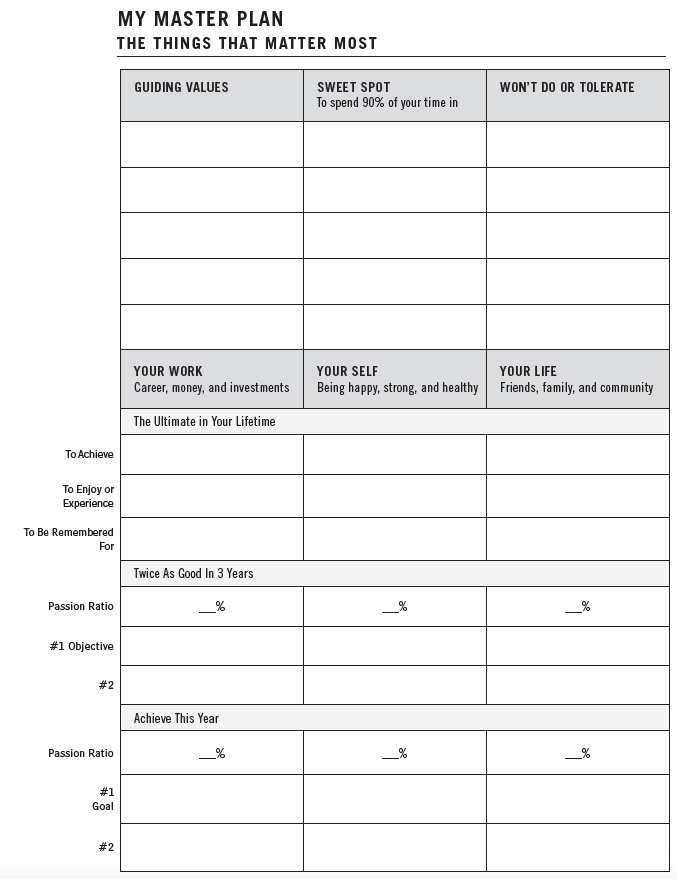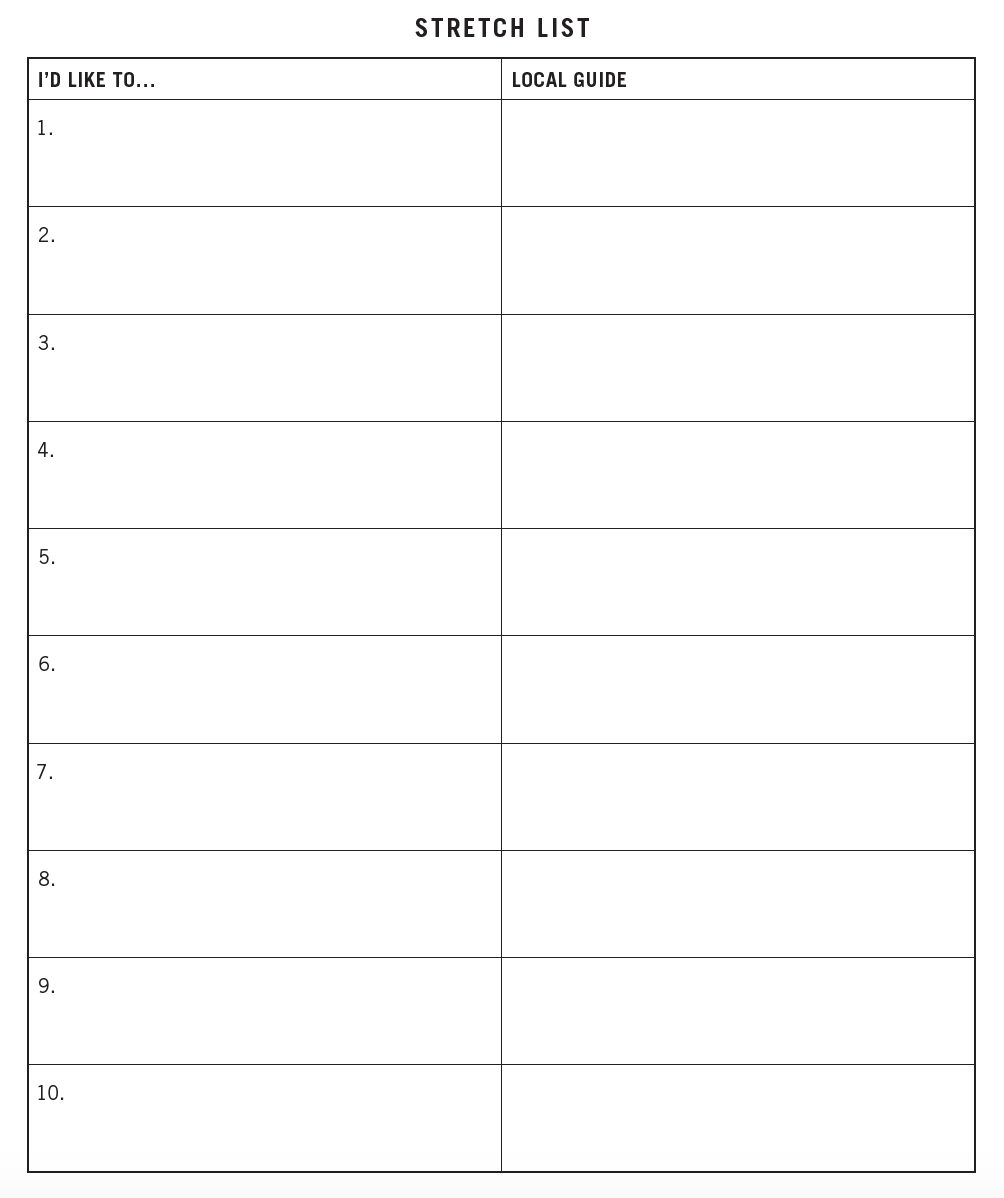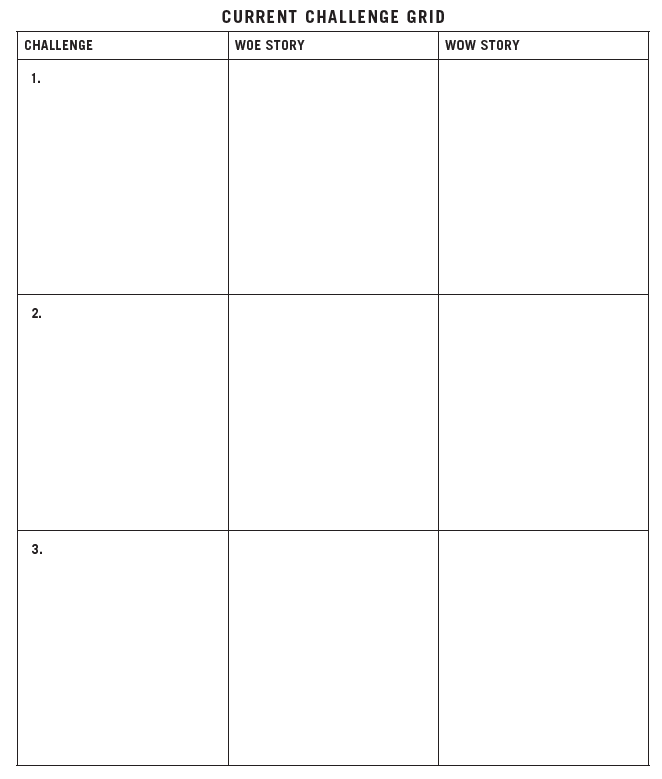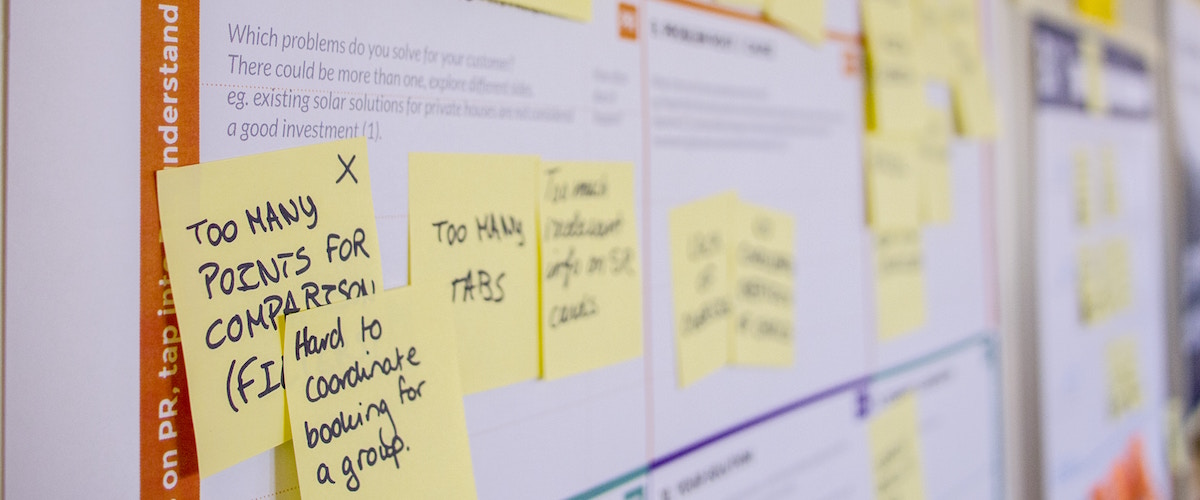Ignore Conventional Wisdom
What if I told you to completely ignore all the best practices and conventional wisdom that’s been shared with you?
If I told you it was actually bad advice and, in many cases, would do more damage than good for you, as a leader?
What if I told you that most of the information is designed for people working in a normal spectrum of challenge and achievement?
But you - you are up to more. You are doing big or bigger things than most people.
You need different advice, and different perspectives and different views.
All those views and perspectives should relate to people doing things similar to you.
Like elite athletes, or those who decide to summit Everest.
Think about that.
Put On Your Oxygen Mask First
One major point of my book Your Oxygen Mask First - is that the missing part of the equation is that everyone talks about work-life balance. That conventional wisdom is the worst idea in the world for high performers.
There’s another factor that’s not being considered – and that’s you.
If you want to sustain, in the long term, and really love this experience of life, you have to focus on your work, your life and this thing called ‘self’ that has to be in the equation. Otherwise, you get squished out and sooner or later pay a big price.
Actually, you need to learn to be a lot more selfish. It’s a bad word, taboo in our society. You’re supposed to be a servant leader, to eat last and all those other beautiful concepts, but if you’re summiting Everest you can’t do that. You have to have a plan to keep yourself strong and resilient - to talk about resilient rituals for body, mind and spirit. If you don’t, sooner or later, you’ll pay the ultimate price and get destroyed.
There are lots of people in popular media you can look to - Amy Winehouse, Robin Williams, Anthony Bourdain, Kate Spade - very highly talented, wickedly successful people. How did that happen? It’s really easy.
A Victim of Your Own Success
What I’ve learned working with high-performing CEOs and leaders, around the world, is that they often - sooner or later - succumb to their own success.
These are amazing leaders - people we idolize, read about in books and see in the media - up to amazing things that we admire and would love to be able to accomplish for ourselves.
They continue to make things happen and accomplish, crushing any obstacle in front of them.
Until they don’t.
Until they hit that wall.
Until they get to the point that all the tools, tricks and techniques they have used, in the past, stop working.
They start to feel like a failure. Like they are broken, not good enough.
They feel alone in all this, and shame and disappointment in themselves.
And, unfortunately don’t get the right help – to learn there’s a better way. That there are more advanced tools and better advice.
Usually they have to talk to different people to learn different things and confront the fears that get in the way.
What I get excited about is sharing with them that they aren’t alone - that lots of people have the same challenges, that they are actually predictable – and then showing them the way to their next level of their success.
It’s a pretty spectacular honour.
Work Life Planning: Plan, Plan & Plan Again
We have goals of where we want to get to, and great plans. But of course, that's not how it happens. We end up here, there, and everywhere, when all we need to do is continually recalibrate once every quarter, and we'll get to our goals.
The question is, “How disciplined are you about planning and regularly re-planning for your work, self, and life in terms of what you want to achieve?”
Most people in business have clear goals and objectives in their company. If you don't, maybe you should start with that!
But where we often fail is in our plans for yourself and our life. And that's why I created the master plan. Even when you do have a great plan, sometimes things go sideways.
"Everyone has a plan till they get punched in the mouth." - Mike Tyson
You can be going along when life throws you a curve ball - and you’ve got to reset or rethink your plans. That's why you can start with a plan but every quarter, you have to refocus.
Key Point - You've got to have a simple, all-encompassing plan - ideally on one page. And, in this case, the master plan for your work, yourself, and your life.
You know you need to work on this if:
- Logic just tells you, you should. And you should have an integrated plan that pulls it all together
- You have elaborate, long-winded plans, but don't reference them very often
- You don’t consistently achieve the goals you envision
- You get sidetracked by sudden inspirations
- You consistently over-achieve in one area (likely at work), but under-achieve or sacrifice too much in terms of self and life.
Work Life Planning Tool
Here is the master plan tool. It is extremely simple yet integrates everything that matters to you in one spot, and allows you to recalibrate.
At the end of the year, you do the annual review (see the download link at the bottom of the post to access all the worksheets) where you answer questions about the three categories of your life: work, self, and life and how things went, with some ideas on what might make this year better.
Then you switch over to the master plan and reset your plan for your life:

Across the top, you'll find three things:
- Your guiding values. If you've thought about core values and values you live by, those go there.
- Your sweet spot (which we talked about earlier in the book) is the place where you absolutely thrive and do your best work.
- The things that you won't do or tolerate. This taps back into the principles of teaching people how to meet your standards.
So those are overarching principles.
Then you get into three different time frames.
- The ultimate in your lifetime
- What you want to achieve to be twice as good in the next three to five years, and
- The next year.
It's super important that you get this sorted. It's also a great activity to do with your family members or people close to you, to make sure you're all aligned around what matters for your family.
The key with this master plan is to take into account work, self, and life, and to make sure that you always do the things you need to do for yourself, because you're the thing that holds it all together. You're the glue, you're the structure - and if you don't get what you need for yourself, the rest is going to fall apart.
Then there's the quarterly reset. Every 90 days, go back and do the page where you reflect on the quarter. "Hey, how did it go? What would make it better in each of those three categories work, self, and life?" And then you have a new plan for the quarter. "How much passion do I want to allocate to work, self, and life? What's my number one goal in each of those areas?"
If you dare be so bold…
- You might have your second and third goal in each area and then
- Take a look at the toads that might be building up - the habit that you want to start (likely one of the habits out of the book) – and what you want to stop.
And then there's room for the action plan, to do what you need to do to move forward.
These tools are actually quite simple. It's a matter of making the time, and making it a priority to go and sit, to look at what really matters in those three areas and make sure that when you look at your master plan at the end of your life, you're not going to say, "Woulda, coulda, shoulda." You're going to say, "Been there, done that, and I'm thrilled with how I lived."
On a quarterly basis, it's the same thing. It's about being clear that if this is what I accomplish this quarter - forgetting everything else that may or may not happen - I'm going to feel very good about how I've lived my life, in every aspect of life.
The Challenge
- Download and draft your master plan, and your plan for the next quarter.
- Spend some time, think about them.
- Run them by a friend, run them by a family member, and make sure that they make sense.
At the end of the day, the most important things should be on your plan. And don't worry, all the other random things will continue to show up. But you need to stay focused on the biggest opportunities to make your life great, your work great, and for you to feel great about who you are.
Keep growing. Keep learning. Keep driving.
Push Yourself - Keep Going For It
This post is inspired by my grandmother, Betty Howett. At 81 years of age, she went back to university. She'd been an entrepreneur her whole life, had businesses all across Canada, lived an amazing life, a great adventure. But when she got into her 80s, she was really curious about the religions of the world, and went back to university to study theology. I'm fortunate to have that DNA and I love to keep learning and growing. But I've noticed, the older I get, the harder it seems to get.
So, we're going to talk about what you need to do to push yourself and "keep going for it". Those are the words that my grandmother used to say - and my mother still says to me this day - "Just go for it, keep going for it, keep trying new things, keep expanding your adventure."
How good are you at regularly stretching your personal limits? You can build your confidence as a leader by consciously choosing to do things you think you can’t do, and push yourself towards your true potential.
"We don't stop playing because we grow old, we grow old because we stop playing." - George Bernard Shaw
And it's easy, as you get more established and older in life, to stop taking risks and stop stretching yourself. It's also a sure-fire way to have your soul and your brain start to die.
Key point - Keep creating opportunities to be a novice learning from masters - to be someone in a situation where you're very uncomfortable, probably over your head, but you've got an expert guide to help you figure it out and grow stronger, as a result.
You really need to work on this if:
- In the past six months, you haven't been uncomfortable and once thought, “How the heck am I going to make it out of this alive?” or get out of this situation intact
- In the past 12 months, you haven't tried something new, and then been a spectacular failure
- A challenge makes you squeamish, you likely back down, and/or you haven't pushed through
- You haven't recently felt like the least competent person in a group
- You would love to push yourself to try something new only if someone would teach you, or there was an easy way to make it happen.
Stretch List
As we get more successful - as CEOs, executives and leaders - we often get into a comfort zone and a rut, and we don't put ourselves back into that amateur, novice scenario. And as a result, we can grow weaker, even though we get more experienced.
The solution for this and is something called the Stretch List.
Many people will have a bucket list of cool things they want to experience in their life - the Stretch List is a similar concept that focuses on ways you'd like to stretch yourself and expand your capabilities. The key is to apply it in your work, for yourself and in your life.
Local Guides
One of the major habits that I suggest is to always find a local guide. Look, we're not 17-year-olds anymore. We're experienced people that have lots of great things going for us. Let's not waste our time. Find a local expert or a local guide in whatever it happens to be.
As an example, my son Braydon and I were in London, and we wanted to learn photography. He's really passionate about it and I wanted to learn, as well. So we found a photography teacher in London, who took us all around the city shooting pictures, teaching us the technical aspects of amazing photography. It costs us a bit of money but in four hours, we learned a ton and had a great time too.

The Challenge
- Create a Stretch List - Fill out the first column on your Stretch List.
- Find local Guides - Fill out the ‘Local Guide’ column on your Stretch List to indicate where you would like a guide. Who would be a local guide? Now, if you don't know a local expert, who do you know that could help you find one? Pretty well guaranteed, there's a local expert for everything you want to do.
- Take a step forward - Write down the number one thing you want to do to stretch yourself, and then reach out, make a call or send an email, to find someone that you can do it with, or learn from, and get it booked.
Summary
You have to push yourself out of your comfort zone on a regular basis because that's where the magic happens. You learn, grow, and keep your soul agile and moving ahead when you're doing things that stretch you.
Unfortunately, as you get established and comfortable, you're less likely to do it. What you want to do - as Liz Wiseman talks about in her book Rookie Smarts - is continually go back to that rookie mentality, and that rookie state, where there are massive amounts of learning – where you're stretching and expanding who you are, at the core, so that you don't become stale, stagnant, and ineffective as a leader.
Overcoming Negative Thinking by Learning to Love the Lessons
How good are you at seeing the benefit in your biggest challenges, at work and in life?
The key to overcoming negative thinking is learning how to shift painful experiences into lessons that help make you stronger and smarter - and turn a "woe is me" attitude into a "wow!!' learning mindset.
"I never lose. I either win or I learn." - Nelson Mandela
Now really think about that: I win, or I learn.
There is no losing in life. There is no failure in life. You can just have some really, really expensive learning experiences. And I've had tons of them. When you see that, in every situation, you're going to learn something or gain, no matter what, you tend to let go of your resistance, and find a way to move through it, to get on to the next thing.
Key Point - Appreciate the painful experiences that make you grow stronger and smarter. If you take a look back at the most painful, excruciating experiences that you've had, those are the ones that developed your character. Those are the ones that made you smarter and more capable, and more determined, and more resilient.
Unfortunately, for most of us, when we're in the middle of those situations, we dread them, we hate them, and we try to wish them away. When the reality is that those are the things that we need to make us stronger.
The main distinction in this chapter is ‘woe versus wow’. Whenever you're saying, "Woe is me. Why is this happening? This sucks. It's not fair. Why, why, why?", no good will happen. You are resisting the problem that you're having and, truly, if you're seeing it as a problem, you will go nowhere. Your creative mind does not find ways to solve it. You're just putting energy into staying where you're at.
The challenge is to train your brain and build the discipline, in almost every situation, to quickly switch to ‘wow’.
"Wow, this is brutal. This is intense. This is crazy. This is hard. But I know – some way, somehow - this is good for me. I am going to be better for it." Said differently, the quicker you can go from seeing a problem as a curse to a gift, then you can find the value, and move on.
There's a real psychological benefit to this, as well. As human beings, we love to - and need to - see the value or purpose in things. So if I'm going through some excruciating pain and I don't see any value in it, I’ll feel bad and it’ll to drain me. But, in the same situation, if I get my mind around it, get my heart around it, then I start feeling better about drudging through all these challenges.
You need to work on this if:
- You easily get stuck in ‘woe’ thinking about past struggles, even though they probably did make you stronger. You're still looking back and saying, "Oh, that wasn't fair. That wasn't right."
- When the new struggles arise, your mind quickly starts to produce thoughts of ‘woe’, and about how challenging your life is, and how you wish things like this wouldn't happen to you.
- You don't get your lesson. You keep facing the same kinds of struggles, again and again, and again, kind of like Ground Hog Day.
- When obstacles do arise, you get stuck and don't move forward for a long time.
- You're generally unaware or in disbelief that 99% of your story about any challenge is pure fabrication.
This last point is very important. In any situation, there are usually two or three facts - and then a whole bunch of stories, opinions, and other things that we wrap around it - but at the core, we always apply meaning to situations.
By the way, we have a choice about the meaning we apply to a situation. You can look at your car getting a flat tire as an amazing gift or an amazing curse. From a fact point of view, is a flat tire good or bad? There's no data to say one way or the other. The truth is a flat tire is a tire without air. That's it - and you can make up a hundred different stories about it.
As a leader, look for the good story about it - how it adds value, and how you grow stronger from it. Otherwise, as a leader, when you deal with hundreds of challenges in the week, you'll get beaten up and destroyed if you see every single one as being negative, through the perspective of a victim with a "woe is me" mindset.
The Challenge
- Think about a situation that you're currently in that's driving you crazy and burning a ton of energy. Odds are, you're in a ‘woe’ mindset, and I'm not judging you for that. It's a normal human reaction.
- But what I want you to think about is, how do you get to a ‘wow’ mindset? In the grid below, list your current challenges:
- What's your ‘woe’ story - the story you're telling yourself right now?
- What's the ‘wow’ story?

As simple and as cheesy as this might sound, they're both just stories.
If the ‘woe’ story is keeping you stuck and not making you feel good, why don't you come up with a ‘wow’ story to get you moving forward and feeling good? If this is a habit that you really see value in mastering, it might be your number one habit for the quarter.
Summary
Woe to wow: When it comes to all the challenges we get in life, if you truly love the lessons and have a, "Wow, this is painful but amazing in some way," it will be easier for you to tackle these challenges, and you will grow stronger the more you get beat up by life, rather than beaten down.





